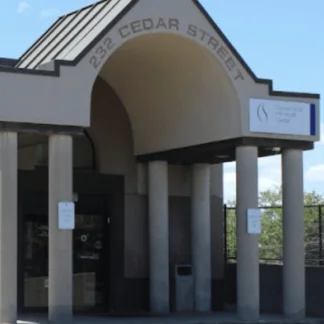Yale - Behavioral Health Services
Yale – Behavioral Health Services is a private rehab located in New Haven, Conne...
Located in New Haven, Connecticut, Cornell Scott Hill Health Center Cedar Street provides alcohol and drug rehab services to individuals struggling with substance use disorder and mental health challenges such as dual diagnosis.
Cornell Scott Hill Health Center- Cedar Street supports individuals seeking addiction treatment. Services include:
Detox FDA-approved medications are provided to individuals on an inpatient basis to help them detox from addictive substances in a safe and effective manner. Inpatient detox allows for monitoring and safety that would otherwise not be available at home.
Outpatient The outpatient program involves individual mental health counseling, group therapy when appropriate, family therapy when appropriate, and the option to participate in self-help groups or recovery communities. Examples include SMART recovery and 12 Step programming.
Medication Assisted Treatment FDA- approved medications are provided to assist individuals in detoxing iin a safe and effective manner. Individual therapy, group therapy, and classes that cover topics related to relapse prevention and management of triggers, is provided.
Contact us for more information: (203) 503-3000

Connect with Cornell Scott Hill Health Center - SCRC by calling their admissions team directly.
(203) 503-3000 Website Get DirectionsThe Substance Abuse and Mental Health Services Administration (SAMHSA) is a branch of the U.S. Department of Health and Human Services. Established in 1992 by congress, SAMHSA's mission is to reduce the impact of substance abuse and mental illness on American's communities.
SAMHSA Listed: Yes
Group therapy is any therapeutic work that happens in a group (not one-on-one). There are a number of different group therapy modalities, including support groups, experiential therapy, psycho-education, and more. Group therapy involves treatment as well as processing interaction between group members.
Yale – Behavioral Health Services is a private rehab located in New Haven, Conne...
Cornell Scott Hill Health Center - Dixwell Avenue offers outpatient services for...
Located in New Haven, Connecticut, Turnbridge is an alcohol and drug rehab facil...
Rheumatology and Rehabilitation Center is a private rehab located in Hamden, Con...